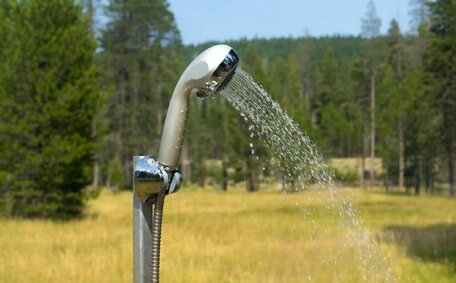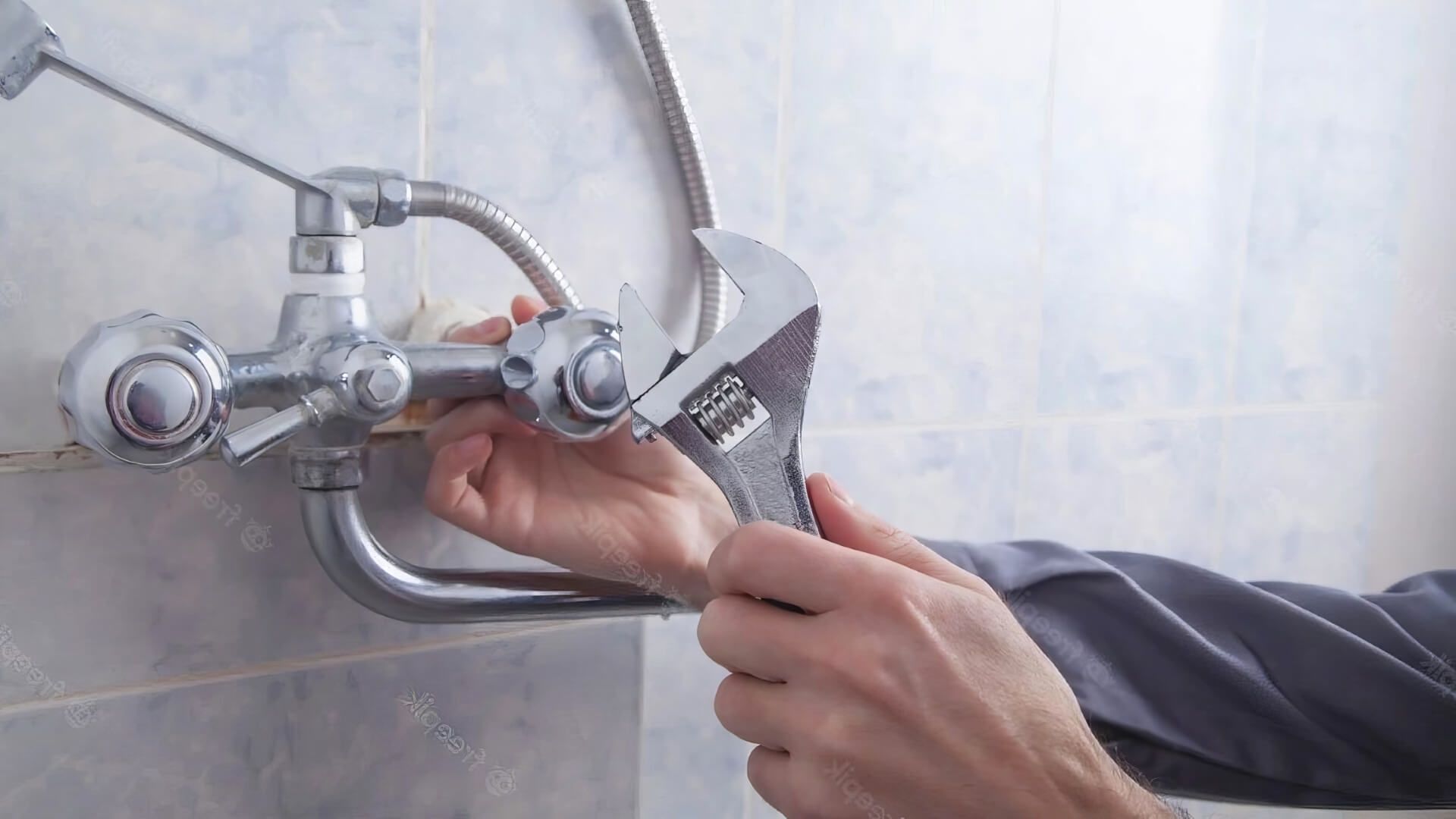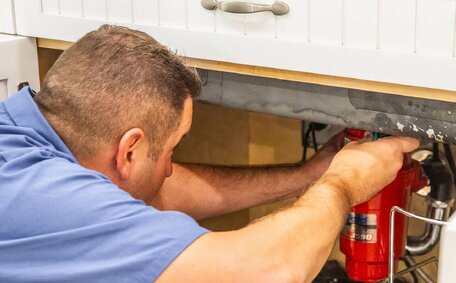What Makes a Hot Water System Efficient
Two key factors contribute to the efficiency of hot water systems:
Energy Source
The energy source powering the system significantly impacts its efficiency.
Heat pump and solar water heaters surpass conventional electric or gas systems in efficiency. With notable energy factor (EF) ratings, heat pumps harness air to heat water, whereas solar heaters use sunlight.
Insulation
A water heater can optimise performance with a well-insulated tank, which prevents heat loss and ensures the water retains its heat for longer periods without the need for constant reheating. Insulation ratings, integral for a hot water heater’s performance, along with uniform energy factor, are included in overall system efficiency scores.
Tank Size
Selecting a properly sized water heater to match demand ensures minimal energy waste, leading to better energy ratings.
Electronic Controls
Smart water heaters with energy controls adjust heating to usage patterns, reducing the need to maintain constant tank temperatures and saving energy and money.
Combining high-efficiency heat pumps, solar panels, appropriate tank sizes, insulation, and intelligent controls can reduce energy use and costs, satisfying hot water demands.
Key Factors That Impact Efficiency
Several factors influence the efficiency of a hot water system:
- Energy Source - Hot water systems can, when powered by renewable sources like solar or heat pumps, be more efficient than electric or gas systems.
- Insulation - Well-insulated tanks and pipes prevent heat loss and improve efficiency.
- Age of System - Boasting advanced tech, newer systems amplify efficiency, offering high efficiency water heating solutions.
- Maintenance - Regular servicing can help ensure the water system your house relies on runs efficiently over time.
- Tank Size - Properly size hot water system tanks waste less energy heating excess water.
- Continuous Flow Fixtures - Low-flow showerheads and faucets effectively reduce water usage, contributing to overall efficiency.
By selecting the hot water system your household requires most tailored for efficiency, maintaining it consistently, and adopting water-saving fixtures, you can reduce your energy consumption substantially.
Types of Hot Water Systems and How They Work
Two types of hot water systems are available to cater to your home’s specific needs:
Electric Storage
Electric hot water systems use heating elements to ensure a constant supply of warm water when tapped. These systems operate simply, which leads to low installation costs but potentially higher running costs.
Gas Storage
Gas systems, with their insulated tanks and efficient burners running on natural gas or LPG, offer competitive efficiency with lower operating costs than electric alternatives.
Heat Pump
Heat pump units extract heat from the air via refrigerant cycles to warm the water, producing up to three times the energy they consume, and are well-suited to temperate climates.
Solar
Solar heating systems efficiently utilise the sun’s renewable energy and are most effective in sun-rich regions.
Water either flows through rooftop panels or indirectly gains heat from antifreeze liquid within these panels.
When selecting a hot water system, assess factors like energy efficiency ratings, climate suitability, household size and usage, installation and running costs to choose the optimal system to meet needs.
Measuring Efficiency: Energy Star Ratings Explained
Energy Star ratings provide a standard way to compare the energy efficiency of different hot water systems. The more stars a system boasts, the higher its efficiency with water heating.
What Do The Stars Mean?
Energy Star ratings for water heaters vary from 1 to 10 stars, with 10 signifying peak efficiency. The star rating system examines key factors like:
- How much energy the system uses to heat water
- How effectively water temperature adheres to the first hour rating during peak usage periods
More stars equate to superior insulation, reduced standby energy waste, and heating optimised for demand.
How Efficiency Ratings Translate Into Savings
Higher rated systems have lower operating costs. For example, a 10 star heat pump system can cost half as much to run as a 5 star gas electric resistive model. Over a system’s lifetime, this adds up to thousands in energy bill savings.
Higher efficiency also translates into a reduced environmental impact, lowering your carbon footprint through decreased greenhouse gas emissions. So Energy Star ratings illustrate a water heater’s energy usage, guiding consumers towards both cost savings and sustainability.
Comparing the Efficiency of Different Systems
The type of system, its typical lifespan, efficiency rating, annual running costs, and suitability for various household sizes are critical to consider:
| Electric Storage | 10-15 years | 2-4 stars | $400-$800 | Small households with low demand |
| Gas Storage | 12-15 years | 3-5 stars | $300-$700 | Medium households with occasional high demand |
| Heat Pump | 15-20 years | 8-10 stars | $200-$500 | Medium to large households with high demand |
| Solar with Electric Water Boost | 20+ years | 8-10+ stars | $100-$300 | Large households with very high demand |
As shown in the table, the efficiency rating and running costs can vary greatly depending on the system type. As the most efficient solutions, heat pump and solar systems result in lower energy bills through their lifespan. When selecting a system, consider efficiency as well as size to meet your household’s unique requirements.
However, solar systems may incur higher initial costs despite their efficiency.
Tips for Choosing and Optimizing Your System
Key considerations when choosing a hot water system include:
Determine Your Household’s Hot Water Requirements
Estimate your household size and water consumption habits to select a system capacity that meets your needs, such as a larger unit for simultaneous use by multiple residents.
Compare Efficiency Ratings
Determine which hot water system is right for you by checking the Energy Star rating when comparing options. More stars indicate greater efficiency and reduced hot water use, lowering running costs over the system’s lifespan.
Choose the Right System Type
Among electric water heaters, heat pump and solar systems offer the most efficient water heating options. Electric heat system units and gas storage tank systems are less efficient but have lower upfront costs.
Size it Right
Avoiding an oversized tank prevents needless energy loss and avoids heating more water than required.
Incorporate Solar Preheating
Even without a full solar setup, incorporating solar preheating can improve system efficiency significantly, by up to 30%.
Install at Optimal Location
Position heat pump outdoor units in areas with ample airflow and shelter from the elements for optimal operation.
Insulate Pipes
Ensure pipes leading to and from the hot water system are insulated to reduce heat loss.
Service Annually
Annual servicing, including anode replacement and inspection of valves, pressure relief pipes, insulation, and elements, ensures system efficiency.
Get in touch with our experienced team at Penrith Plumbing in New South Wales for a personalised evaluation and recommendation of the best hot water system for your residence.






